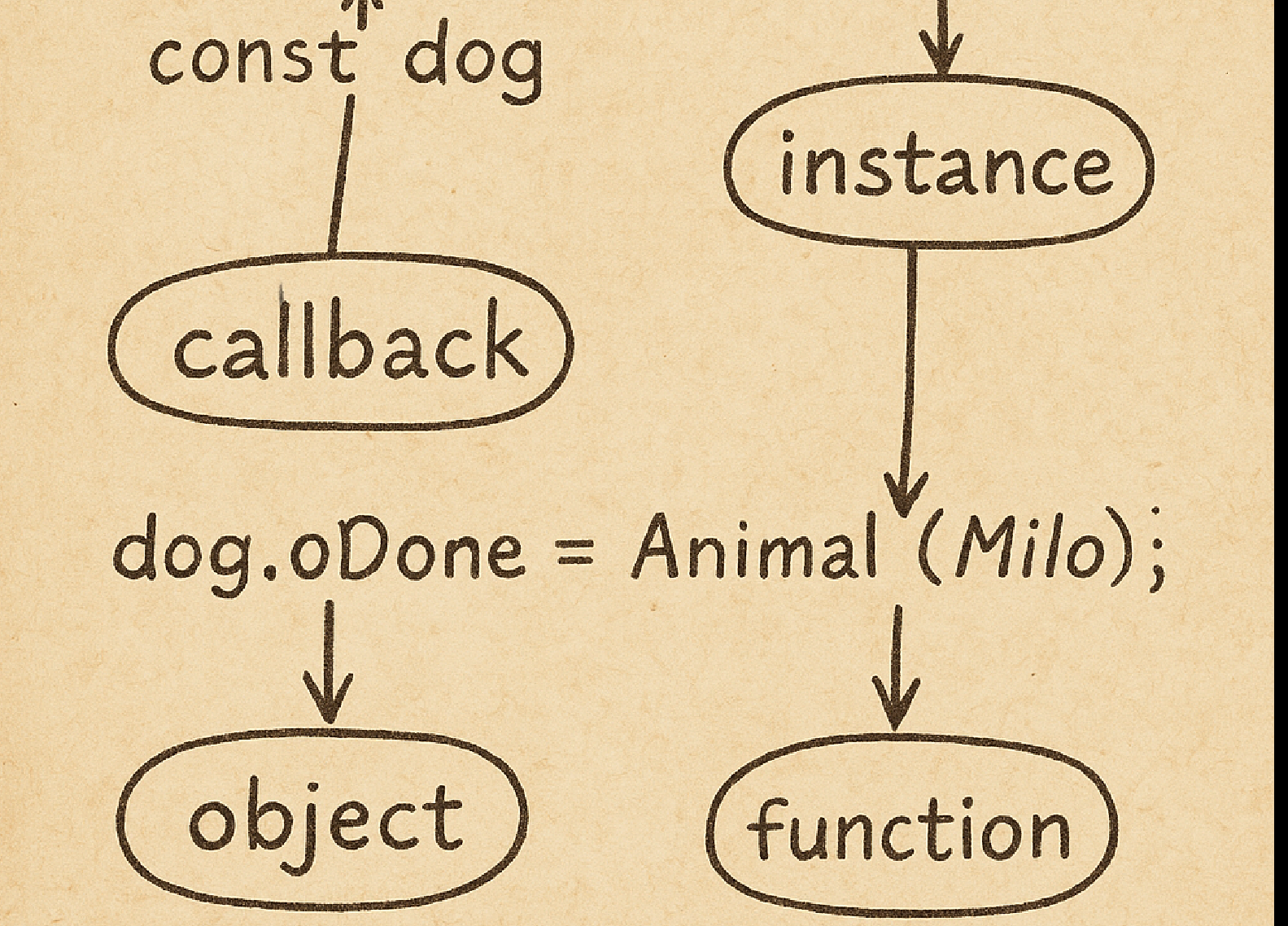
onDone = callback (Single Callback)class Animal {
constructor(name) {
this.name = name;
// A single callback property (can be assigned later)
this.onDone = null;
}
performAction() {
console.log(`${this.name} is running...`);
// If the callback exists, call it
if (this.onDone) {
this.onDone(`${this.name} finished the action.`);
}
}
}
// Create instance
const dog = new Animal("Milo");
// Assign a callback function to be called when action is done
dog.onDone = (message) => {
console.log("Callback received:", message);
};
dog.performAction();
onDone(callback) (Multiple Callbacks)class Animal {
constructor(name) {
this.name = name;
// A list of callbacks to notify when done
this._onDoneCallbacks = [];
}
// Method for registering a callback
onDone(callback) {
this._onDoneCallbacks.push(callback);
}
performAction() {
console.log(`${this.name} is running...`);
// Call all registered callbacks
for (const cb of this._onDoneCallbacks) {
cb(`${this.name} finished the action.`);
}
}
}
// Create instance
const dog = new Animal("Luna");
// Register multiple callbacks
dog.onDone((message) => console.log("Logger 1:", message));
dog.onDone((message) => console.log("Logger 2:", message));
dog.performAction();
| Feature | onDone = callback | onDone(callback) |
|---|---|---|
| Simplicity | ✅ Simple | ❌ Slightly more involved |
| Supports multiple callbacks | ❌ No | ✅ Yes |
| Familiar for beginners | ✅ Yes | ⚠️ Slightly abstract |
| Scales well | ❌ Not really | ✅ Yes |
| Style | Declarative | Event-driven |
| Reassignable | ✅ Yes | ✅ Yes (via multiple calls) |

Thanks for reading! ^_^